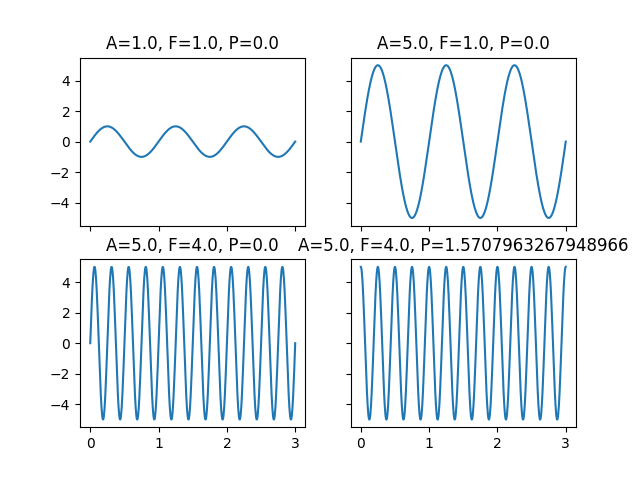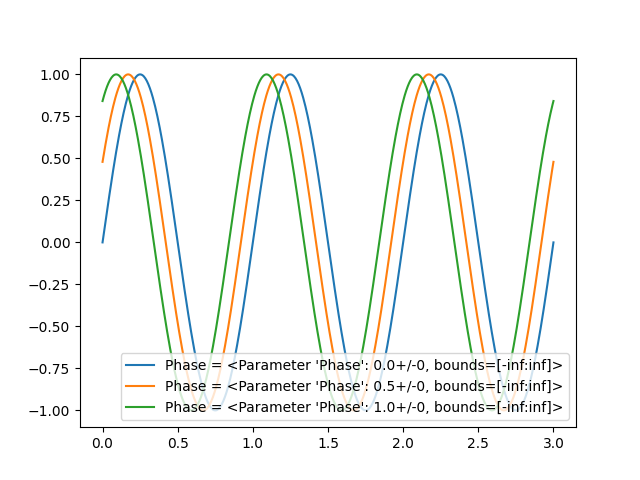Note
Go to the end to download the full example code.
Subclassing BaseObj - Simple Pendulum#
This example shows how to subclass easyscience.Objects.Base.BaseObj with parameters from
EasyScience.Objects.Base.Parameter. For this example a simple pendulum will be modeled.
Imports#
Firstly the necessary imports. Notice that we import numpy from easyscience. This is not done for any reason other than saving time from multiple imports.
import matplotlib.pyplot as plt
import numpy as np
from easyscience.Objects.ObjectClasses import BaseObj
from easyscience.Objects.ObjectClasses import Parameter
Subclassing#
To include embedded rST, use a line of >= 20 #’s or #%% between your
rST and your code. This separates your example
into distinct text and code blocks. You can continue writing code below the
embedded rST text block:
class Pendulum(BaseObj):
def __init__(self, A: Parameter, f: Parameter, p: Parameter):
super(Pendulum, self).__init__('SimplePendulum', A=A, f=f, p=p)
@classmethod
def from_pars(cls, A: float = 1, f: float = 1, p: float = 0):
A = Parameter('Amplitude', A)
f = Parameter('Frequency', f)
p = Parameter('Phase', p)
return cls(A, f, p)
def __call__(self, t):
return self.A.raw_value * np.sin(2 * np.pi * self.f.raw_value * t + self.p.raw_value)
def plot(self, time, axis=None, **kwargs):
if axis is None:
axis = plt
else:
axis.set_title(f'A={self.A.raw_value}, F={self.f.raw_value}, P={self.p.raw_value}')
p = axis.plot(time, self(time), **kwargs)
return p
Single Example#
To include embedded rST, use a line of >= 20 #’s or #%% between your
rST and your code. This separates your example
into distinct text and code blocks. You can continue writing code below the
embedded rST text block:
p1 = Pendulum.from_pars()
# Another pendulum with Amplitude = 5
p2 = Pendulum.from_pars(A=5)
# Another pendulum with Frequency = 4
p3 = Pendulum.from_pars(A=5, f=4)
# Another pendulum with Phase = pi/2
p4 = Pendulum.from_pars(A=5, f=4, p=np.pi / 2)
Plotting

Multiple Examples#
To include embedded rST, use a line of >= 20 #’s or #%% between your
rST and your code. This separates your example
into distinct text and code blocks. You can continue writing code below the
embedded rST text block:
pendulum_array = [Pendulum.from_pars(p=phase) for phase in np.linspace(0, 1, 3)]
fig = plt.figure()
for pendulum in pendulum_array:
pendulum.plot(t, label=f'Phase = {pendulum.p}')
plt.legend(loc='lower right')
fig.show()

Total running time of the script: (0 minutes 0.303 seconds)
